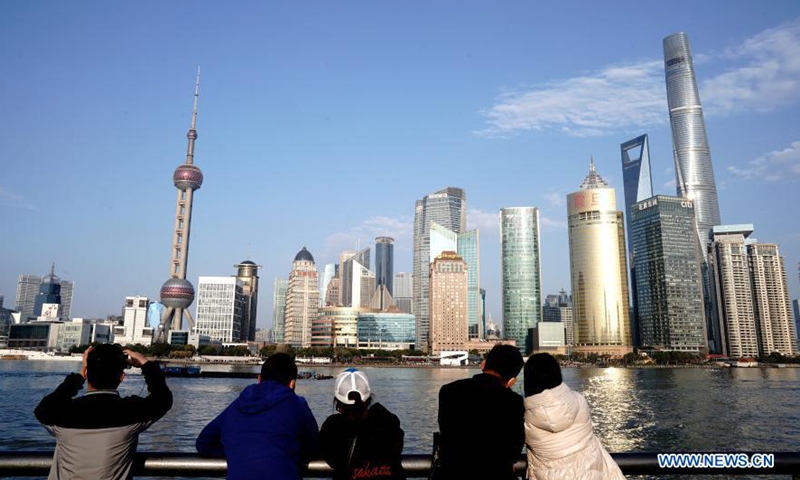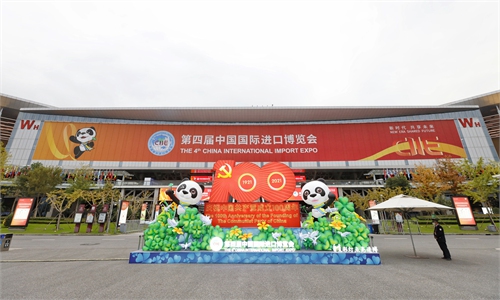
Tourists visit the Bund during the Lunar New Year holiday in east China's Shanghai, Feb. 14, 2021. (Xinhua/Zhang Jiansong)
China will continue promoting reform and opening-up in an unswerving way to achieve high-quality development, Chinese Vice Premier Liu He said in an article published in the People's Daily on Wednesday.
China's commitment to opening-up will not change today or into the future. It is necessary to promote the transformation from flow-oriented opening-up of commodities and factors, to rules and other institutional opening-up, to accelerate the establishment of an institutional system and regulatory model that are in line with internationally accepted rules.
Participation in market competition across developed economies and the introduction of high-tech and high-quality direct investment from developed economies should be viewed as an important aspect for improving the level of domestic opening-up, the Vice Premier wrote. Meanwhile, the development of the Belt and Road Initiative should be continued to be promoted as a means to progress high-quality globalization.
In the first 10 months of 2021, foreign direct investment in actual use in China reached 943.15 billion yuan ($142 billion), an increase of 17.8 percent year-on-year. The annual growth rate reached 23.4 percent in US dollar terms, according to data from the Ministry of Commerce.
The cause of common prosperity should be promoted by high-quality development, in the process of which such practices of egalitarianism and "killing the rich to help the poor" will not be allowed, according to the article.
In terms of reforms, Liu said that major breakthroughs in key areas should be targeted. For example, prices of such factors as land, finance, technology, data and other key economic sectors should be determined by the market, and the pricing mechanism for coal and electricity should be streamlined.
To tackle the energy supply crisis, Chinese authorities in October implemented measures that allowed coal-fired power plants to charge some customers market-driven prices for electricity.
China's daily coal output has now stabilized after reaching over 12 million tons and the price of coal futures has declined to 800 yuan per ton, a fall of nearly 60 percent from the peak reached in October, said the National Development and Reform Commission, China's top economic planner on Saturday.


